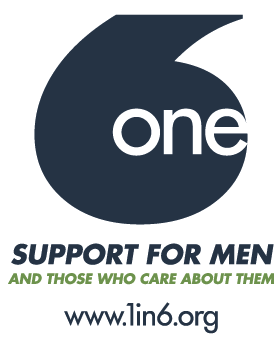You can leave this site quickly.
Learn more about Internet safety.
Forgiveness vs. Reconciliation
In my experience, one path to true happiness and freedom is forgiveness, which is why I love writing about it. I grew up hearing, “Randy you just have to forgive, forget and move on.” These words only made me cringe and sent me into a fit of rage.
Today, I will tell you that, in my opinion, considering the option of forgiveness toward whoever has harmed you offers a great opportunity. That being said, it’s important to understand that, in my view, even once you’ve decided to explore it, forgiveness is a process and takes time. How much time, you ask? That depends on the individual and the depth of harm that has been inflicted on that person.
Let me be clear, I believe forgiveness is for you, not the person who hurt you. I need to really stress this because this is the biggest misconception I have found around the idea of forgiveness. It is actually a selfish act, for your benefit only.
People often confuse forgiveness with reconciliation, as if they were the same thing. They aren’t. Reconciliation is the final step in the forgiveness process, but it is the “cherry on top”—an extra bonus when and if it occurs.
The space for reconciliation opens up when two people acknowledge and are able to discuss the nature of the wrongs that were done and to be accountable and to ask for forgiveness for any harm, or at least for an opportunity to make amends. Reconciliation is wonderful when it happens, but I’ve found that forgiveness is too important to my peace of mind for it to be dependent on whether or not the people who caused the harm are able to admit how they wronged me.
I have rarely heard of people who’ve behaved abusively spontaneously going to their victims and asking for forgiveness. In most cases, they blame their victims, or flat out deny that any abuse ever took place.
To this day, my mother simultaneously denies that I was abused, while stating that I was the cause of that very abuse. One of the reasons I don’t usually recommend confronting the people who harmed you is that it is unlikely that they will be healthy enough to walk the recovery path with you. On the other hand, it is unfair for your recovery to be held back by their issues. Their illness has already stolen enough of your happiness; it’s time you take it back. It takes two people to reconcile, but only one to forgive.
There was a period of time when I really struggled with the concept of forgiveness versus reconciliation. While my stepfather was and had been out of my life for over thirty years, therefore making it a bit easier to forgive him, my mother was another story. Yes, I had fully forgiven her, but she was still very toxic to me. At one point she even wrote a two-page letter telling me all the ways I allowed the abuse to continue and how I was now abusing her. This letter sent me down the rabbit hole of shame for a period of three months. It was with a lot of work with my therapist and sponsor that I was able to climb out of it.
After spending several hours with my therapist and sponsor discussing possible solutions, I made the decision to cut her out of my life. Let me be real clear: this was not an easy decision, however it was the only solution for me. However, it left me questioning my forgiveness. If I had truly forgiven her, then why was I not allowing her in my life?
Then one night in church, a guest pastor, Papa Brock, was preaching about forgiveness. I remember it as if he were singling me out. “Hear me and understand me,” he said. “Forgiveness does not mean that the person you forgive will ever be allowed in your life again. Forgiveness does not mean that you will ever have a relationship with that person again. That person hurt you, and hurt you deeply.”
What a relief it was to hear those words. I had been struggling with that issue for years, but the struggle came to an end that night.
Read more on forgiveness vs. reconciliation in my book – Healing the Man Within – available at Amazon or on my website, www.courageoushealers.org.
 - Randy Boyd
- Randy Boyd
Randy Boyd is a licensed California Alcohol and Drug Counselor, Certified Life Coach, the founder of the Courageous Healers Foundation, and an associate of “It Happens to Boys.” He speaks at conferences, schools, and treatment facilities, about the effects of abuse on men, and how men can heal from those effects. Randy is the author of the new groundbreaking book addressing the sexual abuse of boys entitled “Healing the Man Within,” a book for male survivors written by a male survivor. The mission of 1in6 is to help men who have had unwanted or abusive sexual experiences in childhood live healthier, happier lives.
1in6's mission also includes serving family members, friends and partners by providing information and support resources on the web and in the community.
Joyful Heart and 1in6 invite you to visit 1in6.org for info, options and hope, and to learn more about our partnership and Engaging Men initiative here.
The views expressed above are not necessarily those of the Joyful Heart Foundation or 1in6.




Your Voices